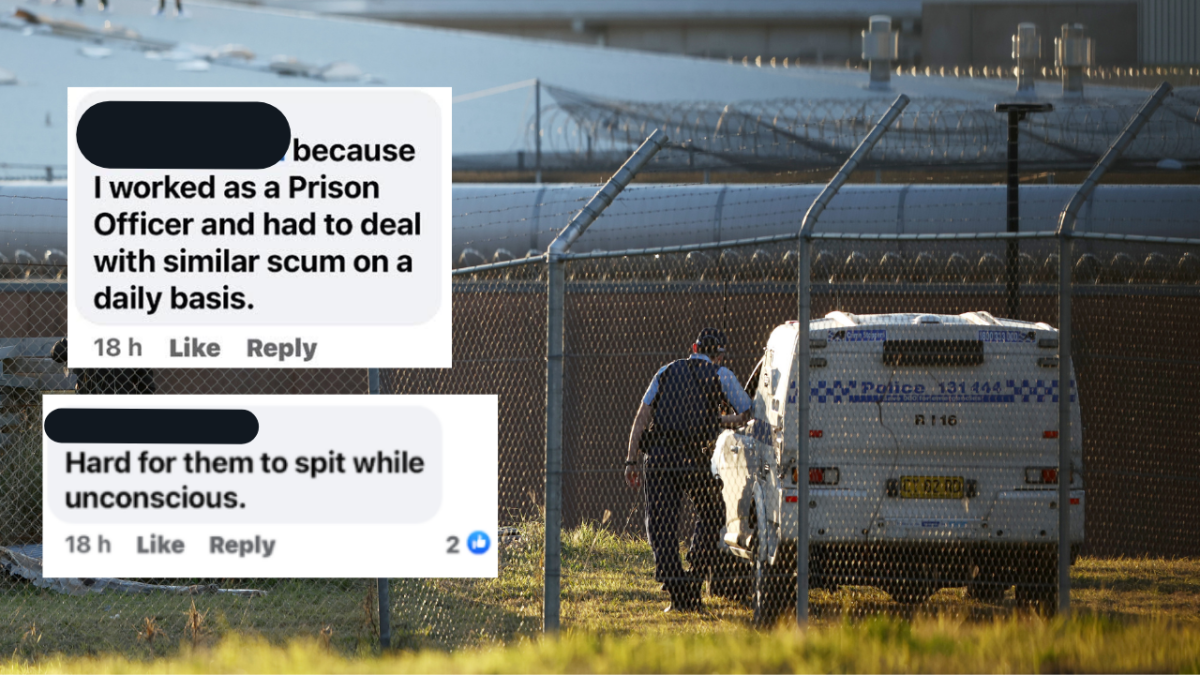
Facebook comments inciting violence against prisoners allegedly made by Queensland prison officers have been the subject of a complaint made by Queensland Greens MP Michael Berkman.
Berkman is now calling for an investigation into the comments, but they reveal a broader and deeply ingrained stigma against people with convictions that has existed since colonisation.
The dozens of comments from individuals call inmates “maggots”, “oxygen thieves” and “junkies”, with others suggesting officers should use violence “to be safe”.
They were made on the Together Queensland Prison Officers’ Union Facebook page, which has not endorsed or condemned the views but has since disabled comments. Some comments were also allegedly made by Queensland corrections employees on a national Facebook page.
“[Prisoners] think they are human and have entitlements,” wrote one.
In response to a prisoner spitting at a guard, one said the “only option” was a “punch to the face”.
“Hard for them to spit while unconscious,” another responded.
“Blame the crims; stop pretending they’re rational human beings; because they’re not; they’re filth. We all know it. Treat them accordingly.”
Berkman said memes with jokes about violence had also been shared in the groups, including one that shows a prison officer telling an inmate to apologise to a tree for making oxygen for them to breath.
These comments, while shocking, are not out of step with Australia’s appalling track record of human rights abuses within our prisons.
Federal legislation requires that persons deprived of their liberty in detention must be treated humanely and with dignity.
But the violations are too many to count. We know about the use of restraints, spit hoods, tear gas and violence against inmates at Don Dale Youth Detention Centre in the Northern Territory. And in August, a 250-person class action lawsuit was launched against a Western Australia juvenile detention centre, where one young child was kept in solitary confinement for six months and developed blood clots due to their lack of movement.
About half of Australia’s prison population also has a physical or mental disability, and experiences more discrimination inside than others.
A 2018 report by Human Rights Watch found that Australian inmates with disabilities are kept in confinement more, and are at a higher risk of sexual abuse, physical violence, bullying and harassment.
And for an island that was invaded and established as a British penal colony, the racism and white supremacy that existed within our penal system in 1788 still exists today.
The 1991 Royal Commission into Aboriginal Deaths in Custody found that the First Nations population was grossly over-represented in custody, and the number of First Nations deaths in custody since 1991 reached 500 this week.
Indigenous adults are imprisoned 13 times the rate of non-Indigenous adults. They make up just three per cent of the total population, but represent 29 per cent of the male prison population, 34 per cent of the female prison population and 55 per cent of the youth prison population.
Just this year the number of children, most of whom are First Nations, in detention in the NT has almost doubled.
The Northern Territory has the highest imprisonment rate in Australia, almost three times Western Australia which has the next highest, followed closely by Queensland.
In regards to the recent Facebook comments, Berkman wrote a complaint to the Queensland police and corrections minister Mark Ryan calling the posts “dehumanising and stigma-based”.
A 2016, a Queensland study found that Australia has a problem with stigma against people with convictions, which ‘challenges in their paths to reintegration’.
It found that the stigma of being labelled an ‘ex-con’ limits the opportunities that are essential to re-entering society, such as securing employment, finding stable accommodation and establishing supportive social networks, therefore making people more likely to reoffend.
Speaking to PEDESTRIAN, Berkman said Queensland needs long-term cultural and structural change to ensure prison staff uphold prisoners’ human rights.
“If the Government insists on locking vulnerable people up, then they need to train their officers in anti-racism, mental health first aid and stigma-free treatment of people who use drugs.”
Berkman says decriminalising drug use could make an enormous different to imprisonment rates.
Illicit drug offences are the second most common principal offences nationally.
In 2021, illicit drug offenders represent 15 per cent of the prison population in Australia. That number has been steadily increasing since 2010.
“Clearly prison is no place for vulnerable people, and the fact that we have hundreds of people incarcerated just for drug use is despicable in itself,” Berkman said.
Decriminalising drug use has not been shown to increase drug use, and in California when cannabis use was decriminalised law-enforcement spending immediately dropped by about two thirds.



